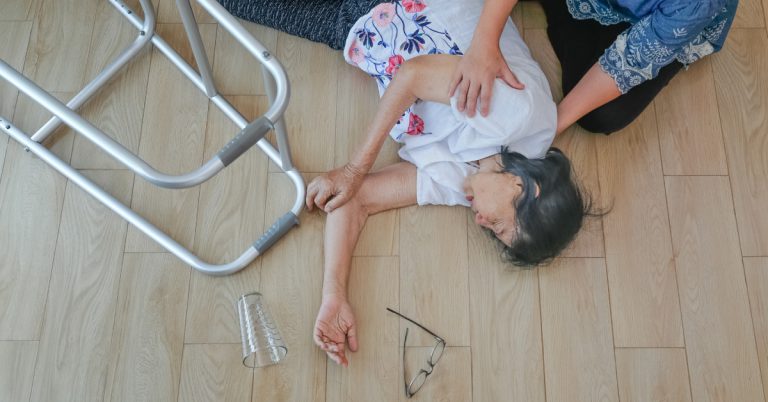All you need to know about Stroke in Singapore
Did you know that stroke is one of the leading causes of death in Singapore? Cerebrovascular disease – of which stroke belongs to – was the fourth most common cause of death in Singapore in 2018. It is also the cause of adult disability. The incidence of stroke in Singapore is more common than you think, but do you know how to identify someone having a stroke?
If you find yourself hesitating, perhaps it’s time to find out more about stroke symptoms. Because when it comes to treating this cerebrovascular disease, time is of the essence.
Read on to find out more about what stroke is and what the symptoms are, treatment options if any, as well as ways to prevent it.
What is a stroke?
When someone gets a stroke, the blood supply in their brain is disrupted, resulting in brain damage. There are generally two types of strokes: ischaemic and hemorrhagic.
Here’s a comparison:
Ischaemic stroke: This is the more common of the two and accounts for 74% of stroke in Singapore. It occurs when an artery that supplies blood to the brain is blocked due to a blood clot.
Hemorrhagic stroke: Among the two types, hemorrhagic strokes are much more severe and difficult to handle. It happens when a blood vessel bursts in the brain, causing a bleed.
No matter what type of stroke someone is experiencing, it’s best to get them help as soon as possible. The earlier you detect this condition, the earlier you can put a stop to the damage.
What are some of the stroke symptoms?
In order to get timely medical help for someone who’s having a stroke, you need to know what the warning signs are. You can do this through the help of the FAST acronym, which lists the four key things you need to look out for.
F – Facial weakness; Is the person’s face is drooping? Are they able to smile normally?
A – Arm weakness; Can the person raise both arms, or are they finding it difficult to keep both arms level?
S – Speech difficulty; Look out for slurring and check if the person can understand what you are saying.
T – Time to act fast; If you spot the symptoms above and suspect someone is having a stroke, call for an ambulance immediately. Don’t take it lightly as a stroke is an emergency medical condition.
Other symptoms could also include headaches, blurred vision, nausea and dizziness.
Is there a treatment for stroke?
A stroke is an urgent condition because once the damage is done, it’s irreversible and the effects are often long-lasting. There’s usually a very small window for treatment, if any.
For instance, in the case of an ischaemic stroke, blood thinners that dissolve the clot and help resume normal blood flow have to be given within the first three to four hours of the stroke occurring.
Haemorrhagic strokes on the other hand, may require surgery. Every minute that your blood vessel remains blocked equates to more damage to your brain tissue. It’s therefore pivotal that you seek medical help immediately and as quickly as you can.
Following the first stroke, other types of treatment include managing any underlying conditions that may have led to the stroke, as well as post-stroke rehabilitation. Stroke survivors rarely come out unscathed and usually have to deal with new-found disabilities like loss of control of their muscles, numbness or weakness in the body. Some may also experience changes with their mental abilities.
Due to the long term damage that it can do, the best treatment for stroke is actually prevention.
How to prevent a stroke?
Among the various stroke risk factors, there are some that are non-preventative, such as your age, race, gender, and genetics. However, the good news is that the rest of the stroke risk factors are controllable and can greatly reduce your risk of getting a stroke.
Let’s take a look at what these risk factors are.
Hypertension: Otherwise known as high blood pressure, this is the risk factor that you should focus on the most. When treated, it can make the most impact as uncontrolled hypertension increases your risk of getting a stroke by up to four times. Make a habit of checking your blood pressure regularly, and cut down on your salt intake and alcohol if it borders on high.
Diabetes: Did you know that diabetics are 1.5 times more likely to get a stroke? Manage this risk by making sure your blood sugar levels are well under control. This includes taking your prescribed medication and watching your diet.
High cholesterol: If you remember, stroke occurs when your arteries are blocked. That’s exactly what too much cholesterol does, as it narrows your blood vessels. Manage your cholesterol levels by reducing your intake of saturated fats, such as fried foods and seafood.
Heart disease: Conditions like atrial fibrillation that cause irregular heartbeats should be treated. At the same time, exercise regularly to improve your heart health.
Smoking: Did you know that smoking increases your stroke risk by 1.5 to 2.5 times? The moment you quit smoking, this risk is significantly reduced and tapers down to that of a non-smoker within five years of stopping.
Besides developing healthy lifestyle habits like exercising regularly and eating healthily, regular health screenings can also help you detect potential conditions early and give you time to take action before it’s too late.
Protect yourself against stroke
Depending on the severity of the stroke, most survivors tend to require help with their daily needs. Some may even need to engage a helper or caregiver, which comes with extra costs. For this reason, besides health insurance and depending on CareShield Life, you should also consider getting a critical illness plan to protect yourself against chronic conditions like stroke.
Want to bolster your coverage but don’t fancy paying high premiums? You’re in luck with the newly-launched 3 Plus Critical Illness plan by Tiq.
It covers the top three chronic conditions in Singapore – Cancer, Heart Attacks and Stroke – which together, make up for 90% of all critical illness claims. You can get coverage between S$30,000 and S$300,000, with premiums starting from the affordable price of S$0.24 per day (for a 17 year old non-smoking male with a sum assured of S$30,000). Thanks to the focus of the 3 Plus Critical Illness plan, you can get protected for less while still enjoying a full range of benefits, and there’s no better time to enhance your coverage than now.
As you already know, time is of paramount importance when it comes to strokes. To avoid this potentially debilitating condition, ensure that you are well prepared with knowledge on what to do when it happens, and have a robust critical illness plan in case it happens to you or your loved ones.
[End]
Information is accurate as at 17 January 2022. This content is for reference only. You should seek advice from a financial adviser before deciding to purchase the policy. If you choose not to seek advice, you should consider if the policy is suitable for you. This advertisement has not been reviewed by the Monetary Authority of Singapore.
Tiq by Etiqa Insurance Pte. Ltd.
A digital insurance channel that embraces changes to provide simple and convenient protection, Tiq’s mission is to make insurance transparent and accessible, inspiring you today to be prepared for life’s surprises and inevitabilities, while empowering you to “Live Unlimited” and take control of your tomorrow.
With a shared vision to change the paradigm of insurance and reshape customer experience, Etiqa created the strong foundation for Tiq. Because life never stops changing, Etiqa never stops progressing. A licensed life and general insurance company registered in the Republic of Singapore and regulated by the Monetary Authority of Singapore, Etiqa is governed by the Insurance Act and has been providing insurance solutions since 1961. It is 69% owned by Maybank, Southeast Asia’s fourth largest banking group, with more than 22 million customers in 20 countries; and 31% owned by Ageas, an international insurance group with 33 million customers across 16 countries.
Discover the full range of Tiq online insurance plans here.







